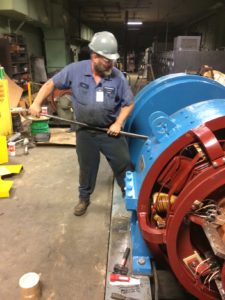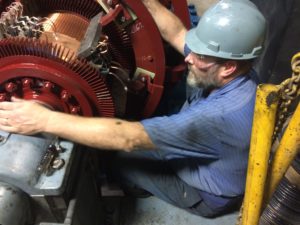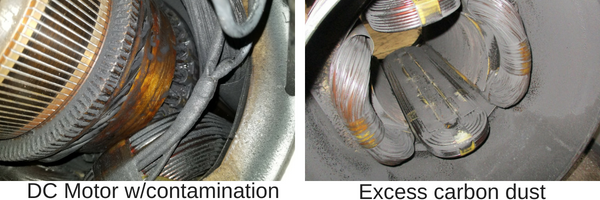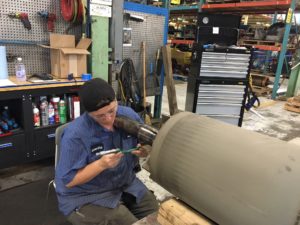Oil forms a film that physically separates the rolling elements of a bearing from the raceways. If the oil viscosity is too low, this separation will not be sufficient; the rolling elements will strike the bearing races and cause damage. The expected life of the bearing will be reduced.
If the oil viscosity is too high, the churning action of the bearing turning will cause the molecules of the oil to be agitated. This is called Fluid shear. When this happens, the friction of the molecules rubbing will increase the temperature of the oil causing it to oxidize and reducing its lubricating ability. Once again, the bearing life will be shortened.



 Sam has been with D.I.E. for almost ten months – and she has wasted no time learning various areas of our business. Sam started as a forklift driver in the Warehouse & Logistics Department and has recently moved over to the Shop where she is currently learning various aspects of disassembly.
Sam has been with D.I.E. for almost ten months – and she has wasted no time learning various areas of our business. Sam started as a forklift driver in the Warehouse & Logistics Department and has recently moved over to the Shop where she is currently learning various aspects of disassembly.